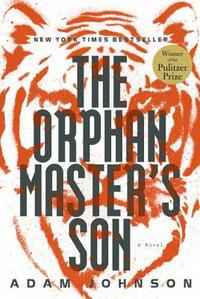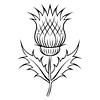You need to sign in or sign up before continuing.
Take a photo of a barcode or cover
adventurous
challenging
dark
emotional
mysterious
sad
tense
slow-paced
Plot or Character Driven:
A mix
Strong character development:
Yes
Loveable characters:
No
Diverse cast of characters:
Yes
Flaws of characters a main focus:
Yes
This book was stranger than Murakami and Saunders put together. North Korea seems truly weird.
One of the most gripping, original novels I've read in years. And the author spent years researching North Korea for it, making it all the more chilling for being, mostly, true to life.
I don't even know how to write about this book yet: the reader in me is still reeling. The writing was the type that hides its own craft. The cleverness does not come from flashy language or even shocking/beautiful description. What makes the work a masterpiece is intricately and subtly woven through every innuendoed sentence, through every simple, easy description which utterly defies my American normalcy. It's the kind of writing that makes good writing seem simple, despite the fact that I know how truly hard this would be to pull off. I still can't believe that the author did not himself live in North Korea but instead used research and apparently some visits to compose this. What a spectacular feat.
dark
emotional
sad
medium-paced
Plot or Character Driven:
Character
Strong character development:
Complicated
Loveable characters:
Complicated
I always appreciate a book where I learn about a new culture or society. In this case it is difficult to know how close to reality the descriptions of life in North Korea are. The book was fascinating, thought-provoking, and a little bit horrible (definitely not for the squeamish). My only complaint is there isn't enough information about the author to know if he is actually knowledgable about North Korea (although he does indicate he has been there) or if this is a complete fantasy. It almost feels like a post-apocalyptic or science fiction book because the setting so very foreign. This would make a great book club book - so much to talk about!
A thriller. A love story. A dystopian novel (OF A PLACE THAT ACTUALLY EXISTS). Call it what you will, but "The Orphan Master's Son" is a novel that aimed for something bigger and hit the mark. The characters, the setting, literary devices like propaganda chapters—it's all amazing. And after reading it you'll agree that sometimes truth is stranger than fiction.
A wild story about the improbable life of a not-quite orphan, this book offers an interesting look at a country it's easy only to think of in terms of its leaders. There are some good themes and ideas presented (e.g. the question of feeling free, the North Koreans questioning how Americans can know how to best serve their country without loudspeakers and conscripted labor). However, as the story shifted from fantastical to nearly pure fantasy, the impact lessened for me, and by the end the narrative style and plot didn't feel like they had been entirely resolved.
Where to start with this book… I had a lot of doubts before starting it, mostly because Johnson is American and does not come from a Korean background so I was worried about the way N Korea would be portrayed and whether there would be an awareness or sensitivity regarding Korea's tumultuous history.
I think it's evident that Johnson did a lot of research regarding N Korea, however, it was the writing that fascinated me. There's a satirical tone to the novel, which we see at the beginning in the prologue, but it makes it return in the second part of the book where Johnson weaves three different plots together. I think it was these moments that I enjoyed the most.
Johnson weaves several different plot lines and seemingly inconsequential circumstances lead Jun-Do towards his unavoidable end. At a certain point I had an overwhelming feeling that regardless of what Jun-Do wanted or what Jun-do did, he would eventually end up the same.
I think it's evident that Johnson did a lot of research regarding N Korea, however, it was the writing that fascinated me. There's a satirical tone to the novel, which we see at the beginning in the prologue, but it makes it return in the second part of the book where Johnson weaves three different plots together. I think it was these moments that I enjoyed the most.
Johnson weaves several different plot lines and seemingly inconsequential circumstances lead Jun-Do towards his unavoidable end. At a certain point I had an overwhelming feeling that regardless of what Jun-Do wanted or what Jun-do did, he would eventually end up the same.
dark
medium-paced





